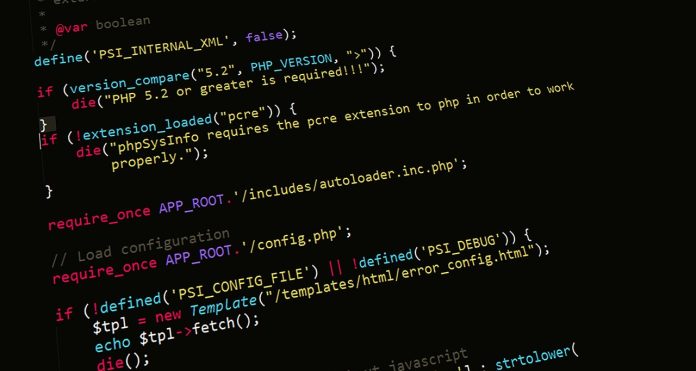AI is transforming academia by enhancing real-time data analysis and research capabilities utilizing the data. It has been beneficial in creating adaptive learning experiences based on individual needs. AI is also a valuable tool for teachers in developing individual lesson plans for students based on their learning capabilities.
Artificial intelligence technology has grown by leaps and bounds, and the global landscape is in the midst of an AI revolution. The trajectory and impact of AI are set in for the future. While AI has significant implications for academia, it is essential to remember that its ancestor, ELIZA, was developed as an exploratory tool, not to take on complete human adaptation.
There are many ethical considerations when adapting to and using AI, primarily when discussing AI girlfriend. However, it is a powerful tool in the right hands. It can identify research gaps across multiple disciplines and help researchers comb through volumes of academic literature in greater depth. Reports detail how students already use AI for their studies, which has broad-reaching implications for educational purposes and the world.
Ethical Considerations
Though many ethical considerations have been raised regarding the proper use of AI, developers have also addressed security and privacy. Ethical concerns have been raised about people’s dependence on technology and how this alters societal norms of human interaction.
In the fast-paced digital world, identity privacy is a significant concern for most. Protecting a user’s privacy, especially regarding data gathering and usage, is critical for AI developers. Security advancements have seen the advent of privacy policies that detail how a company collects, uses, and shares personal data.
Academically, plagiarism is a substantial concern when using AI. AI writing detectors flag potentially plagiarized works by analyzing the linguistic patterns of a text and predicting if it is AI or human-generated material. It is important to note that AI detectors are fallible because they rely on algorithms and training data programmed by humans, so a margin of error should be applied to the content, too.
Ethical considerations about AI and AI companions have been raised since its genesis, and developers have taken them seriously. AI users are also responsible for understanding the technology they are using and how to correct errors. One ethical consideration is that AI develops an “echo chamber” of information about a person’s beliefs and search habits. This can generate only one side of a view or idea. Ultimately, it is up to the user to research all aspects of an idea and make an informed decision.
Data Analysis
Data analysis is one of AI’s most profound benefits in academic research. AI analyzes large amounts of datasets extremely fast and uncovers insights that are difficult to identify using traditional methods. Embracing data-driven approaches using AI has become a critical part of the modern academic world, processing historical data to forecast future outcomes.
Since AI tools analyze large datasets quickly, educators can potentially identify gaps in the curriculum and areas needing improvement. The technology offers streamlined data, enabling educators to focus more on teaching than data management.
Predictive Analytics for Student Outcomes
Along with analyzing reams of data, AI has predictive analytics capabilities for predicting student outcomes. The information gleaned comes from current data trends, which help determine failures in courses or testing. The educator’s benefit is modifying lesson plans or scheduling tutoring for students who are predicted to fail classes or tests.
Using AI in Multiple Disciplines
ChatGPT is used in numerous academic disciplines. The use of technology in research, education, and access to knowledge has grown into a discipline that is becoming increasingly studied.
Since its release in 2022, ChatGPT has emerged as a valuable tool in preparing academic subjects because it can understand and respond to natural language inputs. It saves time and effort for researchers by performing tasks like creating article summaries and identifying key points for documentation.
Artificial intelligence is a wide-ranging tool and a valuable commodity across numerous academic disciplines. AI can be used in physics to explore predictions of mathematically intractable theories. Physics requires large amounts of data to be computed, and AI should ease the burden of finding patterns in larger datasets.
AI has the power to change the way that humans think about and teach psychology. It performs exceptionally well for predicting counterarguments in student papers and developing an answer beforehand. AI tools can also improve interventions and automate administrative tasks. The predictive models are staggering and facilitate assessing the mental health status of participants, particularly the pathological development of mental disorders like anxiety, depression, and stress.
Student Performance
The impetus behind AI transforming higher education is that it enables professors to monitor academic performance more accurately than in the past. Along with predicting how a student will perform, AI can help institutions proactively intervene with students before they fall too far behind, helping them stay enrolled and academically engaged.
Student Retention
Proactively helping students before they get too far behind is beneficial for the institution as it allows it to retain students. Institutions can also use predictive analytics to determine how many students will complete their studies. The implication behind this data is that AI can create a systemic change for institutions to support students throughout their academic careers.
AI technology has increased exponentially in just the past few years and will likely continue its trajectory into the foreseeable future. This has considerable implications for academia and, if the tool is harnessed correctly, could help it grow in never-before-seen ways. Artificial intelligence can analyze data that used to take years to research.
Faster processed datasets with accuracy frees up valuable resources and promotes efficiency so researchers and educators can focus their energy on other aspects of a project. AI also holds great potential for educators in predicting student outcomes and, along with the institution, can proactively help failing students before they start to fail.
Most ethical considerations have been responsibly handled, but it is ultimately up to the AI user to use this technology ethically. If used ethically, it can usher in a wave of academic progress that has never been seen before.




































